Staff costs add to UBS problems
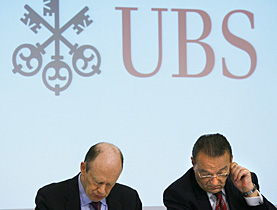
Embattled Swiss bank UBS lost SFr1.4 billion ($1.32 billion) in the second quarter of 2009, pushing total losses for the first half of 2009 to about SFr3.4 billion.
The bank admitted that higher bonus payments had increased staff costs, despite a reduction in its overall headcount. It also said some of its divisions performed poorly compared with rivals.
Wealthy clients continued to withdraw assets, with net outflows totalling nearly SFr40 billion in the last three months. The investment banking division reported a SFr1.85 billion loss, in contrast to some rivals, which had seen a revival in this business.
Analysts had predicted group losses of SFr1.2-1.8 billion and pointed to the bank’s SFr582 million restructuring bill and a SFr1.2 billion credit charge, which pulled profits down. UBS lost SFr12 billion in the first half of 2008.
The Basel- and Zurich-based bank said it was on track to reduce its base costs by SFr3.5-4.0 billion over the next year. So far the bank has eliminated 4,400 jobs with another 4,300 positions to be lost by 2010.
However, staff costs increased by nearly SFr500 million. “The main factor was an increase in bonus accrual quarter on quarter by around 80 per cent,” said chief financial officer John Cryan.
“This recognises in part the competitive pressure in the market for talent.”
Bonus argument “limited value”
The escalation of bonus payments did not impress Bank Sarasin analyst Rainer Skierka.
“What worries me is that the weaker earning parts of the business showed increasing staff costs related to either salary increases or bonuses. There appears to be a mis-balance,” he told swissinfo.ch.
“The argument about the war for talent has only limited value. Obviously people are moving around and getting what they ask for but UBS can’t solve their problems with a chequebook.”
Skierka added that some parts of the group’s business appeared to be harmed by the unwanted loss of key personnel who had jumped ship to other banks on their own volition.
Tuesday’s figures were the seventh time in two years that the bank, now Switzerland’s second-largest, had posted a quarterly loss.
By comparison, cross-town rival Credit Suisse was able to take advantage of a market rebound and beat analysts’ expectations with second-quarter profit of SFr1.6 billion.
UBS said its outlook was cautious but that market conditions had improved steadily during the second quarter. Asset prices and investor confidence had begun to grow.
“In spite of these positive economic signs, the overall economic environment in most of the regions in which we operate remains recessionary,” the bank said in a statement. “Sustainable recovery is not yet visible.”
US tax case hopes
Skierka agreed that some aspects of the bank’s performance were showing encouraging signs of improvement. But he warned that the bank still faces a long hard road ahead.
“It would be misleading to predict a quick turnaround because we see difficult conditions in the third quarter,” he told swissinfo.ch.
However, he did believe that UBS could go some way to repairing the problem of net outflows in its wealth management and asset management divisions if it could successfully solve the ongoing tax litigation in the US.
The bank is wrestling with a pending trial in the United States for refusing to hand over the names of 52,000 wealthy American clients to the Internal Revenue Service (IRS).
But Chief executive Oswald Grübel and Kaspar Villiger, chairman of the board, said the announcement of an out-of-court settlement between the Swiss government and the United States tax authorities would help the bank get back on track.
“This is a positive development in a matter that has adversely affected our efforts to regain the trust of our clients and to restore momentum to our business,” Grübel and Villiger said in a letter to shareholders.
Matthew Allen, swissinfo.ch and agencies
The group made a net loss of SFr1.4 billion.
The red figure stemmed mainly from restructuring costs and credit charges.
The result also included a goodwill impairment charge of SFr582 billion related to the sale of UBS Pactual, which should close next quarter.
UBS reported net new outflows of SFr39 billion in wealth management divisions.
The bank’s tier 1 ratio, a measure of a bank’s ability to weather losses, stood at 13.2%. The sale of UBS Pactual should increase that ratio to 13.7%.
On May 14, 2008, former UBS employee Bradley Birkenfeld and a Liechtenstein businessman were charged by the US authorities with helping an American billionaire avoid paying taxes on $200 million of assets deposited in Swiss and Liechtenstein bank accounts.
Birkenfeld turned whistleblower, giving details of UBS private banking practices to US prosecutors.
In July, a Miami court authorised the Internal Revenue Service to issue a summons on UBS demanding the release of confidential information on clients the agency suspected of tax evasion.
In the same month, UBS told a congressional hearing that it would stop offshore banking activities for US clients.
UBS agreed to pay $780 million and name some United States clients to resolve criminal fraud charges against it.

In compliance with the JTI standards
More: SWI swissinfo.ch certified by the Journalism Trust Initiative

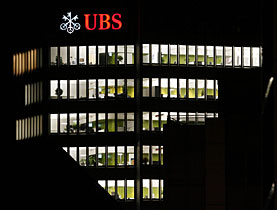
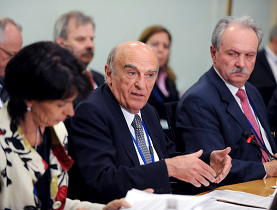
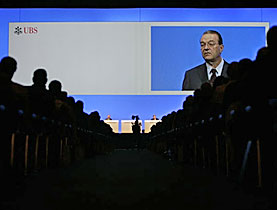
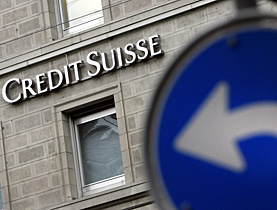
You can find an overview of ongoing debates with our journalists here. Please join us!
If you want to start a conversation about a topic raised in this article or want to report factual errors, email us at english@swissinfo.ch.